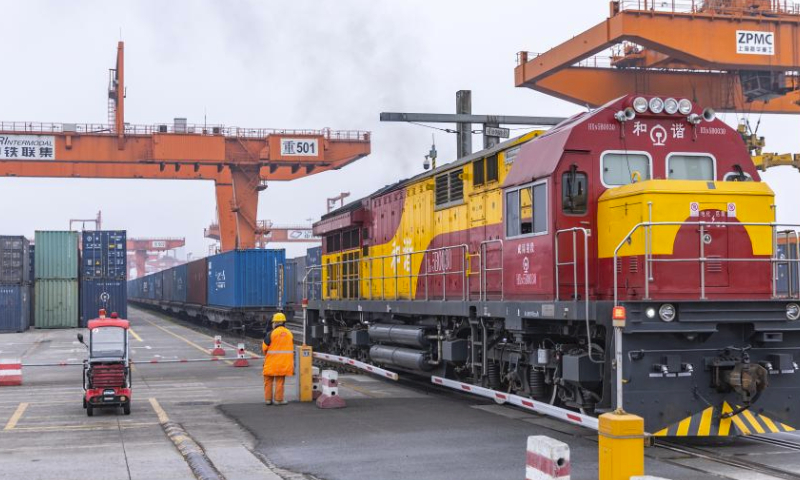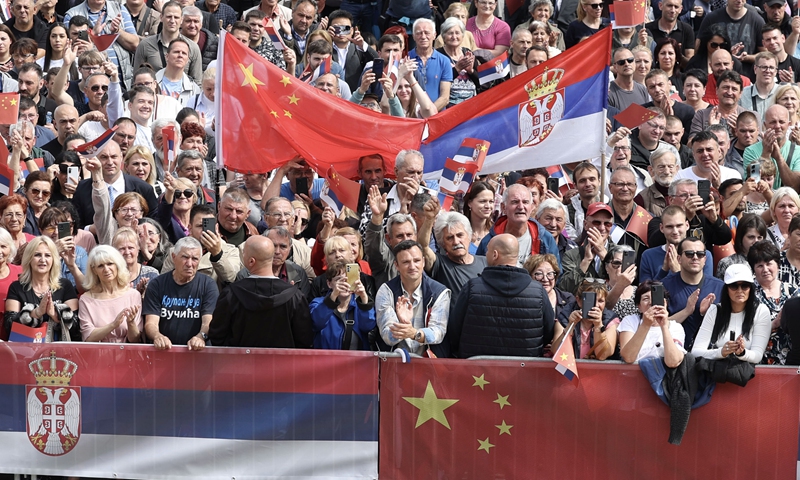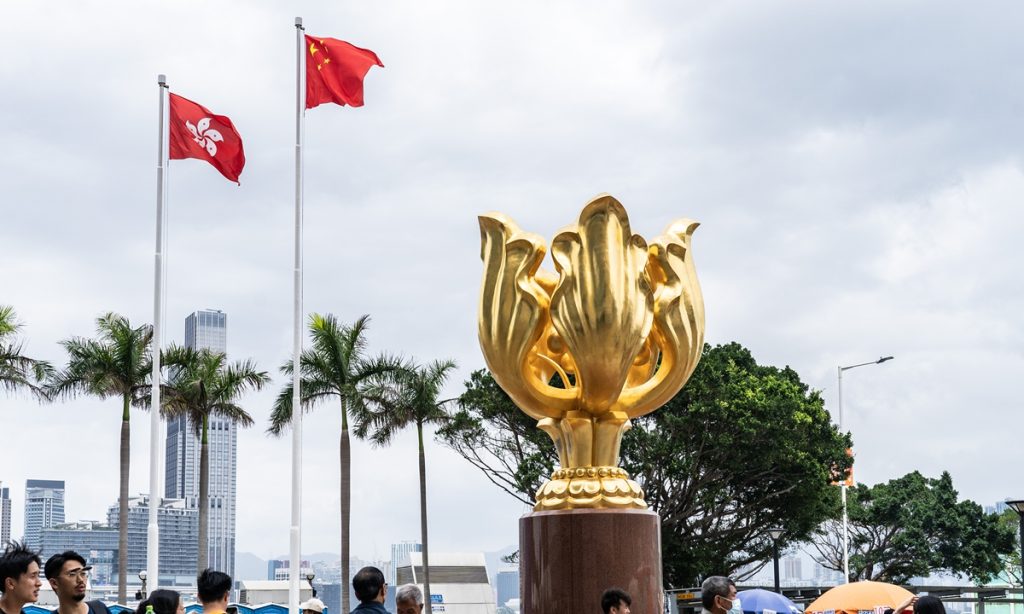Xi's letter strengthens decades-long friendship with Muscatine residents, boosts China-US youth exchanges

Editor's Note:
Chinese people believe that letters are as valuable as gold. For thousands of years, letters, across mountains and oceans, have been delivering the writers' sentiments and conveying friendship and expectations.
Xi Jinping, general secretary of the Communist Party of China (CPC) Central Committee and Chinese president, has managed to find time to reply to some of the letters sent to him from different sectors of the society and different parts of the world despite of his busy work schedule.
Through his letters, Xi has corresponded with people from all walks of life on numerous occasions, part of a series of excellent China stories in the new era.
The Global Times traced and contacted some of the recipients of Xi's letters, to hear the inspiring stories behind the letters and their communications with the Chinese president.
In this installment, the Global Times speaks with teachers and students from Muscatine High School in Iowa, the US, who shared their experiences and insights from their visit to China for exchanges after being invited by President Xi, as well as their hopes for future youth exchanges between China and the US.
"I'm extremely thankful that President Xi spent time to write to us. It was very touching he was able to hear about the amazing times on our trip," Seinna Stonking, a freshman at Muscatine High School in the central US state of Iowa, told the Global Times.
This spring, Stoneking felt inspired and fruitful. She, together with more than 20 other students from her school, received a special gift - a letter from Chinese President Xi Jinping after they concluded their visit to China, which they considered as a "life-changing" and "eye-opening" journey.
On February 24, which marked the Chinese Lantern Festival of the Year of the Dragon, Xi replied to a letter from the students of Muscatine High School who visited China in late January and sent them New Year cards in return.
In the letter, the Chinese president encouraged the Muscatine High School students to revisit China and encouraged more American youths to come to China for exchanges and study, where they can get first-hand experience of a real China in a multi-dimensional and comprehensive manner, foster genuine friendship with the Chinese youth, and learn from each other so that they can jointly contribute to a stronger friendship between the people of the two countries.
Over the years, notwithstanding setbacks in China-US relations, Xi has consistently championed people-to-people exchanges with the US. He has written letters to Americans, stressing that the hope of the China-US relationship lies in the people, its foundation is in grass-roots connections, its future depends on the youth, and its vitality comes from subnational exchanges.
In tandem with the fervent hopes of the Chinese people, an increasing number of young Americans are immersing themselves in the vibrant tapestry of China. They're not merely visiting the nation, but also securing this chance to embrace the country's rich culture, and feel a profound connection between the two countries.
'Dear Grandpa Xi'
In an interview with the Global Times, students from Muscatine High School weren't bashful about their gratitude to President Xi.
"In my and my classmates' letter to President Xi, we wanted to highlight how eye-opening this trip truly was. To add on to this, how grateful we were to be able to have this once-in-a-lifetime opportunity," Stonking said.
With Xi's support, several Muscatine High School students paid an exchange visit to Beijing, Shanghai, and Hebei Province, among other places in China from January 24 to 30, becoming the first group of American students to visit China under a program Xi announced at Welcome Dinner by Friendly Organizations in the US, in San Francisco during his visit to the country in November 2023. The program aimed at inviting 50,000 American youths over the next five years to China for exchanges and study.
One of their gifts to Xi upon their arrival in Beijing was a school flag of Muscatine High School with the words "Grandpa Xi, Here We Are" written in Chinese.
Behind the phrase "Here We Are" was the excitement most students feel when coming to China for the first time, where they climb the Great Wall, visit the Forbidden City, and experience traditional Chinese culture such as writing Chinese calligraphy and weaving Chinese knots.
"It was a new experience for me; it was life-changing and I loved the Great Wall and Shanghai. I had a great time meeting all the teachers and students," Leo Regennitter, a sophomore at the school, told the Global Times.
"The most memorable experience for me will always be the opportunity I got to make a connection with many students I met. All the students and teachers were so unbelievably kind and hardworking. The many places I went to like the Great Wall or the Shanghai Tower took my breath away and were so beautiful," Stonking recalled.
On January 28, before the end of our visit to China, the children discussed what gifts they could give President Xi, to express their gratitude for inviting them to visit China and share with him the joy of their visit, Heidi Kuo, a Chinese language teacher at Muscatine High School, told the Global Times.
Then, a letter featuring beautifully written Chinese characters to "Dear Grandpa Xi" was born.
"Many students poured their heart into their letters, sketching the awe-inspiring highlights of their China journey. From the majestic Great Wall to the cuddly panda, each illustration breathed life into their experiences. There was also a vivid strokes of a hand-painted Chinese dragon in the letter that truly captured their belief in its symbolic representation of China," shared Kuo.
"China is really huge, just like the US. Thank you for giving us the opportunity to come to China," said the letter signed by over 20 students, with hearts drawn next to their signatures.
An 'eye-opening' trip
According to Muscatine Journal, on February 28, during their monthly work session, the Muscatine School Board had the opportunity to hear directly from some of the students and chaperones who visited China for a week, where both Regennitter and Stoneking had the chance to speak about some of their experiences.
Regennitter shared the wonderful experiences the group had at the Shijiazhuang Foreign Language School, which is Muscatine's sister school, where they played table tennis and learned to make Chinese knots. The group also had the opportunity to celebrate Chinese New Year at the Zhang Yuan Garden, where they were joined by college students from the US.
"I told so many people in my life it was an amazing experience that I'll never forget. If any student was thinking of going and was unsure, I would them to go for it and they won't regret it," Stoneking told the Global Times. "It's a completely different experience to see China in person," she emphasized.
While also citing the Chinese saying "seeing is believing" in his reply letter, Xi said the warm and friendly American people he met during his first visit to the US in 1985 have given him an indelible impression.
The same touching experience has happened after three decades, among a group of high school students.
"While in China, I've never felt safer and did not view the country as it can sometimes be portrayed in American media," Stoneking said.
Many US media outlets reported that the students' trip to China came amid increased tensions between the US and China in the wake of a series of fractious actions.
However, American students who come to China see that Chinese and American students have forged deep friendships and are eager to communicate with and learn about each other.
"From what I experienced, the people of the US and China are more similar than different and we can learn a lot from each other," Stonking stressed.
Stonking said she felt the trip to China was "so motivating," and encouraged her to learn more about the Chinese language and the culture, "If I get the opportunity I would love to go to college in China and I hope to be a fluent speaker (of Chinese) someday."
Friendship continues to flourish
Muscatine is honored to have sent the first batch of students in the youth exchange program. The encouragement of interactions between the young people of the two countries is a continuation of the nearly 40-year friendship between Xi and the people of Muscatine, American entrepreneur Gary Dvorchak told the Global Times.
In the spring of 1985, Xi, at that time a county leader in Zhengding, in China's northern province of Hebei, took his initial steps on US soil.
From then on, Xi never forgot his American friends and believes that people hold the key to state-to-state relations.
During his trip to the US in November 2023, Xi recalled the story of this friendship with his old friends, mentioning that the house number during his stay was No. 2911 Bonnie Drive.
Today, 2911 Bonnie Drive, just two kilometers from Muscatine High School, has a more familiar name among locals - Sino-US Friendship House.
Dvorchak, owner of the house, and son of Eleanor and Thomas Dvorchak, the family that hosted Xi during his 1985 visit to Muscatine, believed that President Xi's warm response to the school students shows the value he sees in having young people from both countries getting to know each other personally and better understanding the values we share as human beings.
Dvorchak believes that the 50,000 young people exchange program and the Sino-US Friendship House getting more attention shows that people-to-people exchanges are all signs of building positive momentum.
"My hopes are high that the level of interaction will grow, producing tighter bonds among the people of our two great countries. This effort is critical to improving the relations between our countries," he said.
Kuo, in her seventh year of teaching Chinese at Muscatine High School, has witnessed a remarkable shift in student interest toward China and its rich culture. From once being unfamiliar, more and more students now eagerly embrace the allure of China.
Excitingly, the school is gearing up to send more students on a trip to China this coming April.
"After returning from our trip and watching the videos we captured, many students expressed a strong desire to visit China," Kuo shared.
Some Chinese schools also expressed their interest in fostering a sister school relationship with Muscatine High School. "We are eager to see students from both countries build even stronger bonds of friendship," she said.






